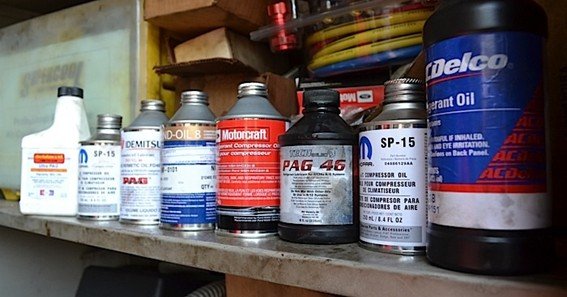The ac compressor oil is a critical component that ensures the smooth operation and longevity of your air conditioner. Without proper lubrication, the compressor – the heart of the cooling system – may wear out prematurely or even fail, leading to costly repairs. In this blog post, we discuss what ac compressor oil is, its different types, and provide essential maintenance tips to keep your AC system running efficiently.
What Is AC Compressor Oil and Why Is It Important?
AC compressor oil is specifically formulated to lubricate the moving parts of an air conditioner’s compressor. This oil reduces friction, protects against wear and corrosion, and helps in the overall cooling process by transferring heat away from the compressor. Using the correct oil ensures the system operates smoothly, extends the lifespan of the compressor, and maintains optimal performance even under heavy use.
Types of AC Compressor Oil
There are several types of ac compressor oil available on the market, each designed to meet specific compressor requirements:
- Mineral Oil: Traditionally used in older compressor systems; it’s less expensive but has a shorter lifespan.
- Synthetic Oil: Offers superior performance with better thermal stability and longer life. This oil is often recommended for modern, high-efficiency AC units.
- Polyolester (POE) Oil: Commonly used in systems that require refrigerants like R-410A. POE oil is known for its excellent lubrication properties and compatibility with newer refrigerants.
Maintenance and Replacement Guidelines
Proper maintenance of your AC compressor oil is essential to ensure your AC system runs efficiently:
- Regular Checks: Periodically check your compressor oil level and quality as part of your routine AC maintenance. Low or contaminated oil can lead to compressor damage.
- Scheduled Changes: Follow the manufacturer’s guidelines on oil replacement intervals. For many systems, this might be every few years or during major service appointments.
- Professional Service: When in doubt, have a certified technician inspect and service your AC system to maintain optimal oil levels and overall performance.
Troubleshooting Common Issues
If your AC system isn’t cooling as effectively as it should, improper or degraded compressor oil might be to blame. Signs include unusual compressor noises, reduced cooling efficiency, or increased energy consumption. Addressing these issues promptly by replacing or topping up the oil can prevent further damage and ensure efficient operation.
Frequently Asked Questions
- What is AC compressor oil and why is it important?
AC compressor oil lubricates the compressor’s moving parts, reducing friction and preventing wear and tear, which helps maintain the system’s efficiency and longevity. - How often should I replace the AC compressor oil?
Replacement frequency depends on your AC system and usage. Many manufacturers recommend checking and replacing the oil every few years or during major maintenance service, but always refer to your owner’s manual. - What types of ac compressor oil are available?
Common types include mineral oil, synthetic oil, and polyolester (POE) oil. The right choice depends on your AC unit’s design and the refrigerant it uses. - How can I tell if my ac compressor oil needs to be changed?
Signs include a drop in cooling performance, unusual noises from the compressor, or oil that appears dark and contaminated during a service check. - Can I use any oil in my AC compressor?
No. It’s crucial to use the type of oil specified by your AC manufacturer, as using the wrong oil can damage the compressor and reduce system efficiency.
By understanding and maintaining the right ac compressor oil, you ensure your air conditioning system stays reliable and efficient throughout its service life. Whether you opt for synthetic or POE oil, regular checks and proper maintenance are key to keeping your compressor—and your home—cool.
Keep reading for more information on b21-ag










